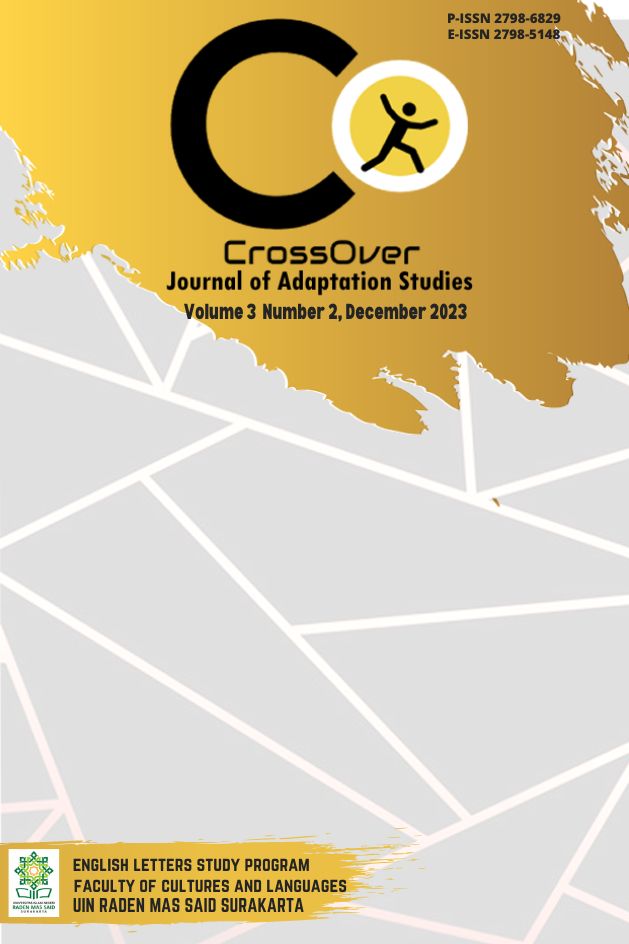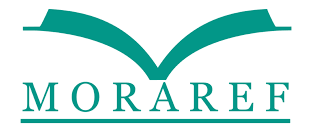NARRATIVE TECHNIQUE ANALYSIS OF SHERLOCK HOLMES AND AUGUSTE DUPIN IN A CROSSOVER FANFICTION PARACOSM
DOI:
https://doi.org/10.22515/crossover.v3i2.7855Keywords:
sherlock holmes, auguste dupin, narrative techniques, crossover fanfiction, gerard genetteAbstract
Narrative technique refers to writers' methods and devices used to tell their stories. Understanding writers' processes and devices to convey their stories is crucial for analyzing and appreciating the arts. However, studying narrative techniques can be complex and requires close attention to detail. This study aims to explain what narrative techniques applied in the crossover fanfiction of Sherlock Holmes and Auguste Dupin to investigate how the narrative form generates impacts on losses and gains of the characterization of Sherlock Holmes and Auguste Dupin in references to their canons and to reveal why the characterization of Sherlock Holmes and Auguste Dupin in the crossover fanfiction are different from their canon. This research uses qualitative methods because the data are in the form of text taken from crossover fanfiction Paracosm (2016) by BiancaAparo. The data are analyzed using Gerald Genette’s narrative techniques. The result of this study showed that the dominant data of narrative techniques applied in Paracosm is narrative mood, which loses their characterization. Narrative mood relates to the position or position of the author, narrator, and characters in a story. That is why the narrative mood is mainly found along with the research objects, the main characters in this fanfiction, Sherlock Holmes and Auguste Dupin. It shows that the two characters have an impact, causing losses of their characteristic. Yet, that does not prevent any gain of the characteristic based on the characters in the original work. Thus, fanfiction can be different from the canon because it is written by different author with different biographical and social elements.
Downloads
References
Abusamra, R. (2023). Narrative techniques in f. Scott fitzgerald's the great gatsby. International Journal of Language Academy, 11(1), http://dx.doi.org/10.29228/ijla.68071
Ballan, D. (2024, January). Exploring the Rich Tapestry of Literary Genres: A Comprehensive Guide. English plus Podcast. https://englishpluspodcast.com/exploring-the-rich-tapestry-of-literary-genres-a-comprehensive-guide/
BiancaAparo. (2016, April). Paracosm. Archive of Our Own. https://archiveofourown.org/works/3871198
Baldick, C. (1991) The Concise Oxford Dictionary of Literary Terms. Oxford University Press.
Creswell, J. W., & Creswell, J. D. (2018). Research design: Qualitative, Quantitative, and Mixed Methods Approaches. SAGE Publications.
Farlex Dictionary of Idioms. (2022). In/Out of Character. TheFreeDictionary.com. Retrieved January 13, 2023 from https://idioms.thefreedictionary.com/in%2fout+of+character
Freytag, G. (1895). Technique of the Drama: An Exposition of Dramatic Composition and Art. S. Griggs.
Genette, G. (1980). Narrative Discourse: An Essay in Method, trans. Cornell University Press.
Khalifatunnisa, P. R., & Iftanty, E. (Eds.) (2023). Character Values in Sherlock Holmes Short Stories by Sir Arthur Conan Doyle: A Content Analysis. Proceeding of International Conference on Islam, Law, and Society, 2(1), https://incoils.or.id/index.php/INCOILS/article/view/84
Martín, L. N. (2019). The Detective’s Method: Holmes, Poirot, Father Brown and the Influence of C. Auguste Dupin. Journal of Artistic Creation & Literary Research, 7(1), https://www.ucm.es/data/cont/docs/119-2019-07-06-7.1.4%20Navajas%20Mart%C3%ADn
Merriam-Webster. (n.d.). Character. In Merriam-Webster.com dictionary. Retrieved January 13, 2024, https://www.merriam-webster.com/dictionary/character
Nazir, M. (1998). Metode Penelitian. Golia Indonesia.
Nurgiyantoro, B. (2010). Penilaian Pembelajaran Bahasa. BPFE.
Overchuk, A. (2018). What is literature or my story about fanfiction world. Medium. https://medium.com/litpop/what-is-literature-or-my-story-about-fanfic
tion-world-75621201578a
Rugg, D. (2010). An Introduction to Triangulation. UNAIDS.
Shaheen, U. (2019). Narrative Analysis of Oscar Wilde‟ s Short Story “The Happy Prince”. Journal of English Language, Literature and Education, 1(01), 39-50, https://doi.org/10.54692/jelle.2019.010135
Spradley, J. P. (1979). The Ethnographic Interview. Holt, Rinehart and Winston.
Zakaria, M. F. R. (2020). Narrative techniques in angie thomas’novel ‘The Hate U Give’. Jurnal Pembelajaran Sastra, 1(2). http://dx.doi.org/10.51543/hiskimalang.v1i2.27
Downloads
Published
How to Cite
Issue
Section
Citation Check
License
Copyright (c) 2023 Rista Fathika Anggrela

This work is licensed under a Creative Commons Attribution-ShareAlike 4.0 International License.
Authors retain copyright and grant the journal right of first publication with the work simultaneously licensed under a Creative Commons Attribution 4.0 International License that allows others to share the work with an acknowledgment of the work's authorship and initial publication in this journal.

















